SAFETY. FIRST AND FOREMOST.
Of all the requirements IC Bus® engineers are tasked with when designing a new bus, one rises above the rest: It must be a safe means of transportation for the children who ride inside. It’s an enormous responsibility and something that we never take for granted.
That’s why the next generation CE Series includes the very latest in safety technology, including standard electronic stability control (air brake models). These features are essential when it comes to empowering the driver with critical information and keeping the children riding inside out of harm’s way.
Key Safety Features:
- First Light illuminated school bus signs and fully illuminated stop arms are now standard on new Next Generation CE Series models.
- Bendix® Intellipark® electronic parking brake standard (on air brake units)
- Bendix® Wingman® Advanced™ Safety Package (air brake units) – including active braking capabilities for collision avoidance, following distance alerts, adaptive cruise and more
- No Student Left Behind child monitoring system
- Single-panel glass on entrance door for improved driver visibility
- Entrance doors integrated into dash cluster, providing ‘Door Ajar’ warning if bus reaches certain speed prior to door being fully closed
- Daytime running headlights with automatic twilight sensor
- Electronic stability control
A Clear Vision
Visibility is crucially important to any school bus driver. Children of all heights walk next to, in front of, behind and toward the bus–and being able to see them is the only way to ensure they are kept safe. The Next Generation CE Series includes several enhancements that help boost the situational awareness of the driver.


Visibility Features
-
+
-
+
-
+
-
+
-
+
-
+
-
+
Illuminated School Bus Signs and Fully Illuminated Stop Arms Come Standard
First Light Illuminated School Bus Signs (ISBS) and Fully Illuminated Stop Arms (FISA) are now standard features on Next Generation CE Series models, enhancing visibility and decreasing stop arm violations to better protect students.
By adding ISBS and FISA alongside existing safety systems and technologies, IC Bus offers customers across North America a more robust set of tools to protect students. Making these products standard was a logical step, as their impact on visibility and safety is proven—ISBS and FISA have shown significant reductions in stop arm violations by improving driver recognition and response around stopped school buses.
Our focus on continuous safety innovation, paired with a design philosophy that puts drivers first—underscores our commitment to ensuring that every child’s ride to and from school is as safe as possible.
IC Bus Full View
Camera Technology™ by Rocco
IC Bus is proud to offer the industry’s first camera system designed specifically for school buses. Combined with the side mirrors, this advanced system will allow bus drivers to have a “full view” around the bus for total situational awareness, so they can concentrate on driving and keeping kids safe.
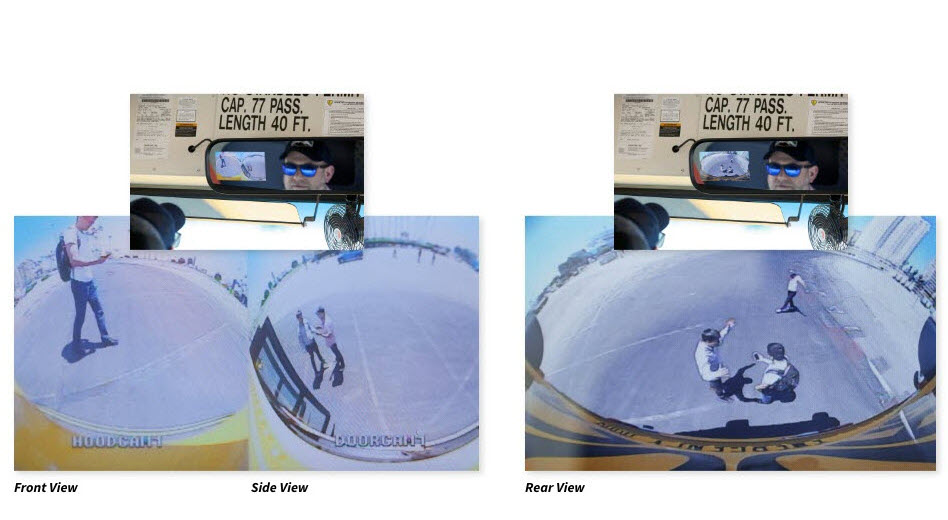

Full View Camera Features
- Provides drivers views based on the situation at hand, such as backing up, opening the door or a view to the side or front of the bus.
- This purpose-built camera technology is designed to not overload the driver with too much information, but instead provide them with the right information at the right time.
- Gives the driver a greater feeling of security and peace of mind with the combination of the full view camera technology and driver mirrors.
- Provides accurate visibility to the areas of that matter most around the bus.
Intuitive Protection
The Bendix® Wingman® Advanced™ Safety Package uses radar and an optional video camera (Fusion package) to scan the forward path of the bus. If a slower-moving or stopped vehicle is detected, the system is designed to reduce the severity and likelihood of a rear-end impact through automatic braking and audible alerts. This integration of various technologies creates a highly detailed data picture that can significantly reduce the chance of a false alert or activation.
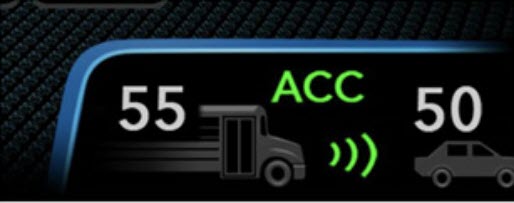

Features |
What it does |
|
Stationary Vehicle Braking |
Provides alert and braking when system definitively identifies stationary car in lane. |
| Stationary Object Alert | Helps reduce the likelihood of hitting a stationary object. |
| Collision Mitigation | Helps reduce the frequency and severity of rear-end collisions. |
| Adaptive Cruise Control |
Helps driver maintain gap with forward vehicle. |
| Following Distance Alerts | Helps reinforce a safer distance gap between host and forward vehicles. |
| Overspeed Alert & Action Lane Departure | Warns driver when speeding and alerts the driver to unintended lane change. |
| Alert Prioritization | Provides most critical alert first helping mitigate driver distraction from multiple alerts occurring simultaneously. |
| Impact Alerts | Helps warn the driver that a collision with a forward vehicle is possible. |
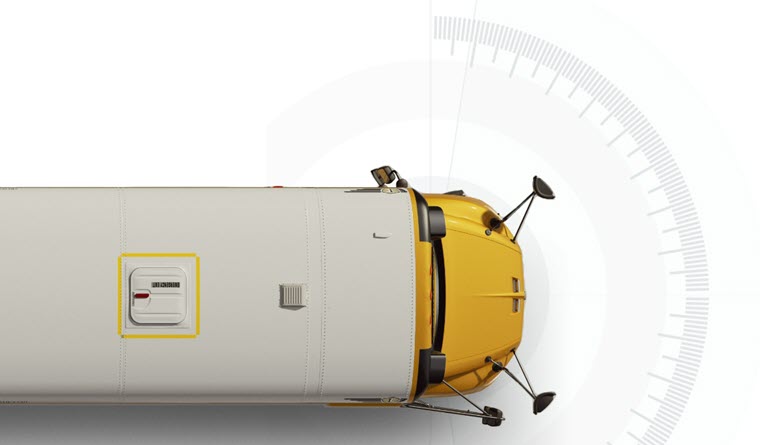

The Importance of Full Stability
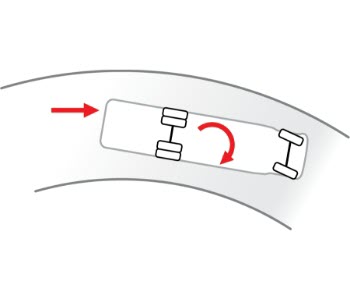
DRIVING SCENARIO:
The vehicle’s speed around a curve has exceeded the ability of the tires to hold the vehicle orientation, causing the vehicle to slide and over-steer.
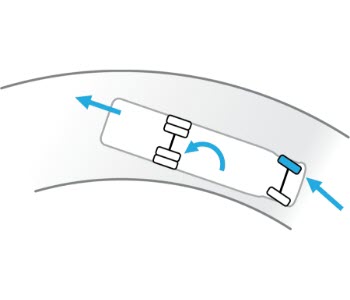
SYSTEM RESPONSE:
ESC helps to correct the vehicle orientation by reducing speed and, if required, the system quickly applies braking pressure to the appropriate wheels.
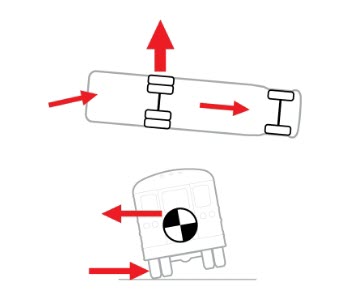
DRIVING SCENARIO:
A vehicle enters a curve too fast on high friction pavement. The wheels and the pavement create a “hinge” effect, allowing the forces at the center of gravity to push the vehicle over.
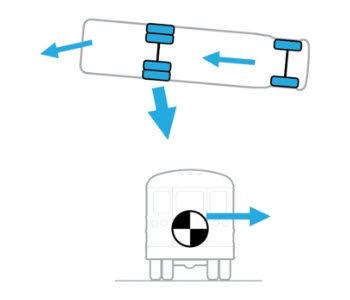
SYSTEM RESPONSE:
ESC applies pressure to all brakes and reduces engine throttle to quickly reduce vehicle speed and help reduce the chance of a rollover.



